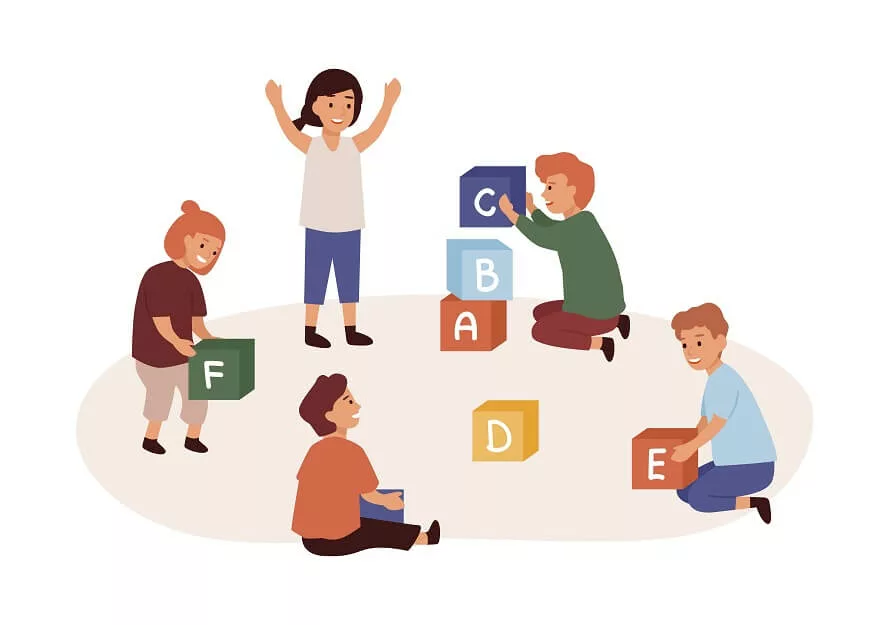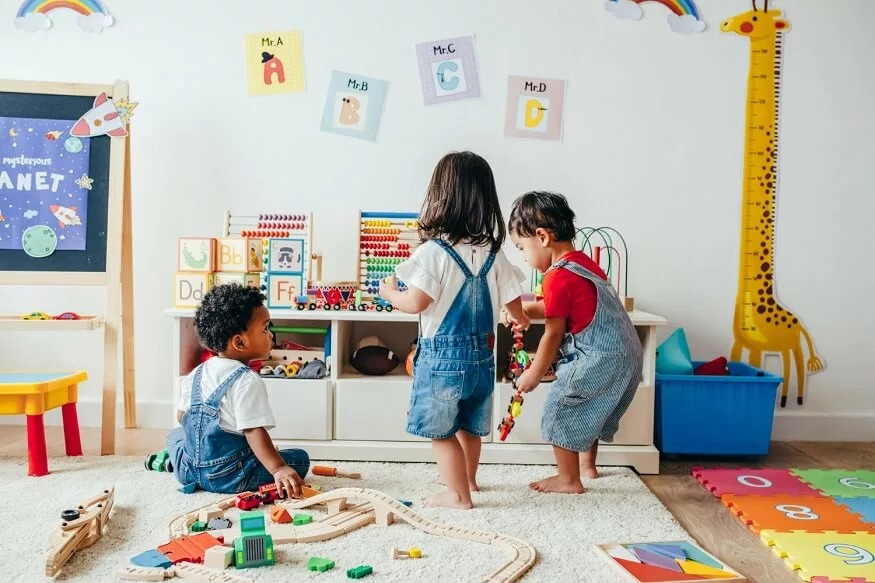Parenting can be a rewarding yet challenging journey, and if your child has Attention Deficit Hyperactivity Disorder (ADHD), you might find yourself navigating unique obstacles. ADHD affects attention, impulse control, and activity levels. Here, we will offer you parenting tips for ADHD, ensuring you provide the right environment for your child to flourish.
Parenting techniques for ADHD
Here are some dos and don’ts for parents whose kids have ADHD:
Do’s:
- Educate Yourself: Before implementing parenting techniques for ADHD, it’s essential to understand the condition fully. ADHD is not a result of ‘bad parenting’ or a ‘naughty child’. It’s a neurodevelopmental disorder with genetic, neurological, and environmental factors playing a role.
- Establish a Routine: Kids with ADHD often find solace in predictability. Keeping a consistent daily routine helps them know what to expect, reducing anxiety and uncertainty.
- Use Visual Aids: Since these children might struggle with verbal instructions, visual cues can be effective. Charts, lists, or colour-coded schedules can assist in keeping them on track.
- Set Clear Boundaries: Clearly defining rules and the consequences of breaking them is crucial. Ensure that the guidelines are consistent and easy to understand.
- Stay Calm and Composed: Reacting impulsively or in frustration can aggravate situations. Demonstrating patience helps your child feel understood and less defensive.
- Celebrate Small Achievements: Recognise and applaud even minor accomplishments. This boosts their confidence and reinforces positive behaviour.
- Engage in Physical Activity: Regular physical activity can be therapeutic. It serves as an outlet for excess energy and can improve concentration and mood.
- Seek Professional Guidance: ADHD tips for adults aren’t one-size-fits-all. It can be beneficial to consult a therapist or counsellor who can offer tailored strategies and support.
Also Read: CBT for Kids & Teens: How It Works, Examples, & Effectiveness
Don’ts:
- Don’t Compare: Avoid comparing your child with siblings or peers. Every child is unique, and such comparisons can dent self-esteem.
- Avoid Overloading Information: Giving too many instructions at once can overwhelm a child with ADHD. Instead, provide one direction at a time.
- Don’t Dismiss Their Feelings: Children with ADHD often grapple with emotions. Instead of saying, “Don’t overreact,” listen and empathise.
- Don’t Delay Feedback: Immediate feedback, whether praise or constructive criticism, is more effective. It helps link the feedback to the specific action.
- Avoid Being Negative: Phrasing matters. Instead of saying, “Don’t run,” try “Please walk.”
- Don’t Forget Self-Care: Parenting with ADHD can be demanding. Remember to care for yourself, seeking support when necessary and taking breaks.
Also Read: Dealing with Hyperactive Kids
Parenting Techniques for ADHD: Tailored Strategies
Here are some tailored strategies for parents whose child have ADHD
- Positive Reinforcement: Using rewards can be one of the most effective ADHD tips. Sticker charts, tokens, or simple praise can go a long way in motivating desired behaviours.
- Time-outs: These aren’t punishments but rather moments for the child to recalibrate and regain control.
- Clear Communication: Ensure you have your child’s attention before giving instructions. It might help to make eye contact and ask them to repeat the information back to you.
- Create a Dedicated Study Space: For homework or tasks that require concentration, create a clutter-free, quiet space. Using tools like timers can help break tasks into manageable chunks.
- Stay Connected with School: Regular communication with teachers ensures you’re aware of academic performance and any challenges faced.
ADHD Tips for Adults: Managing Your Expectations
If you’re an adult with ADHD, parenting can present additional challenges. It’s essential to recognise that managing your ADHD is a crucial aspect of parenting effectively. These ADHD tips for adults can be game-changers:
- Seek Support: Joining support groups or attending therapy can offer invaluable insights and coping techniques.
- Organise and Prioritise: Tools like calendars, apps, or to-do lists can be your allies in managing daily tasks.
- Practice Self-compassion: Parenting is hard, and everyone makes mistakes. Allow yourself grace and learn from every experience.
- Work as a Team: If you have a partner, ensure you both are on the same page. Cohesive parenting strategies can offer stability to your child.
Also Read: How to Pick the Right Psychologist for Your Child
Supporting Your Child’s Emotional Needs
Parenting a child with ADHD can be a unique and often challenging journey. With their heightened impulsivity, distractibility, and energy levels, children with ADHD might require a different set of parenting tools. Beyond the daily practicalities, there’s an essential aspect that parents sometimes overlook: the child’s emotional needs. Here are some tips to ensure that as a parent, you’re meeting these crucial needs.
- Understanding is Key: Before anything else, it’s crucial to genuinely understand ADHD. It’s not about a child “not trying hard enough” or being “disobedient”. Recognise that their behaviours are not wilful but are often manifestations of their disorder. Empathy goes a long way in building trust.
- Consistent Affection: Children with ADHD can sometimes feel out of place or ‘different’. Regularly reinforce your love and pride in them. This isn’t tied to their achievements but to who they are as a person. Unconditional love provides a security blanket.
- Open Communication: Foster an environment where your child feels safe discussing their feelings without the fear of reprimand. They should know they can come to you with concerns about friends, school or their inner feelings.
- Positive Reinforcement: Praise more than you criticise. Focus on their strengths and celebrate small victories. This boosts their self-esteem, counteracting any negativity they might encounter elsewhere.
- Provide Routine and Structure: While it might sound contrary to ’emotional needs’, children with ADHD often find comfort in predictability. This can ease anxieties and give them a sense of control.
- Seek Support: Don’t shy away from seeking professional support if needed. Therapy or counselling can provide your child with strategies to cope with their emotions and challenges.
- Teach Resilience: Equip your child with tools to handle failure or setbacks. It’s okay to make mistakes, and it’s essential to learn from them.
- Be Their Advocate: Children with ADHD might face challenges in school, both academically and socially. Ensure teachers understand their needs and advocate for any necessary accommodations. This shows your child that you’re in their corner.
- Educate Siblings: If there are other children in the household, educate them about ADHD. This fosters understanding and reduces potential resentment or misunderstandings.
- Self-care for Parents: Remember, you can’t pour from an empty cup. Take time for yourself and ensure you’re emotionally equipped to support your child.
While the journey might be dotted with challenges, with understanding, patience, and consistent support, children with ADHD can thrive emotionally. EuroSchool believes that every child deserves to be nurtured and understood, and parents hold the power to provide that safe haven.










